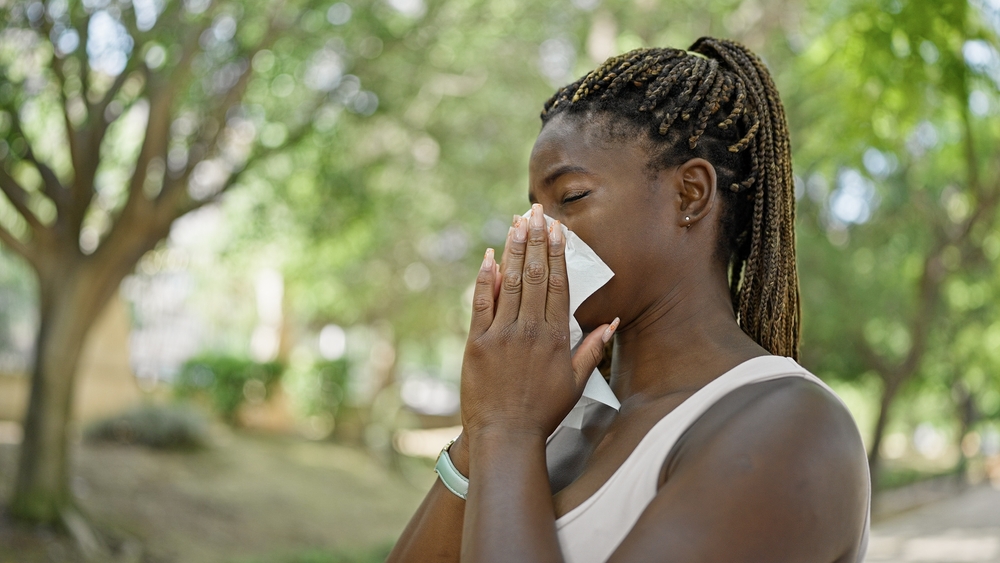
Do you have a much more difficult time when it’s really humid outside? It’s not just about feeling sticky; it could also be impacting the health of your sinuses. Sinus infections, medically known as sinusitis, can often be exacerbated by high humidity levels.
Symptoms of a sinus infection
Discomfort and a general disruption of your daily life often go hand-in-hand with sinus infections. When fluid containing viruses or bacteria accumulates in the sinuses, a sinus infection is often the outcome.
Recognizing the symptoms is critical for timely treatment:
- Excessive Sinus Drainage: Constant sinus drainage is a sign of infection.
- Headaches: Pressure headaches are a common symptom, signaling sinus inflammation.
- Tooth Pain: Tooth pain is not uncommon with sinus infections.
- Persistent Nasal Congestion: Sinus infections frequently cause stubborn nasal congestion lasting for ten days or more.
- Fever: Sinus infections sometimes come with a persistent fever.
While not all symptoms will present at the same time, if you have any prolonged or severe cold-like symptoms, consult your primary care physician to assess the possibility of a sinus infection.
Can humidity trigger sinus infections?
Among the various causes of sinus infections, humidity certainly plays a role. Despite preliminary skepticism, severe humidity can certainly contribute to sinus infections due to its impact on respiratory defense mechanisms.
- Effects on Cilia Function: Humidity has an effect on the tiny hairs in your nasal passage that help move mucus around known as cilia. In overly humid weather, cilia function diminishes, compromising the body’s defense against infection.
- Increased Susceptibility to Allergens: Fluid accumulation and sinus inflammation can be exacerbated by extended exposure to irritants and allergens due to high humidity.
What are optimal humidity levels?
Maintaining an ideal balance of humidity is essential for sinus health. While the body’s defensive mucus and cilia require adequate moisture to function effectively, overly high humidity levels can be harmful.
Monitoring dew points, especially when they rise into the 70s, can help individuals gauge humidity levels and take appropriate safeguards.
Reducing the risk of a sinus infection caused by humidity
While total elimination of humidity-induced sinus infections may be difficult, several preventive measures can decrease the risk:
- Avoiding Allergens and Irritants: Sinus swelling can be reduced when it’s humid out by trying to steer clear of any known allergens. Avoiding activities like walks in wooded areas or exposure to smoke can help minimize the risk of infection.
- Utilizing Nasal Sprays: Nasal sprays can help preserve optimal levels of moisture in the nasal passages, supporting healthy cilia function and decreasing vulnerability to infections.
When to consult an ENT specialist
Chronic or repeated sinus infections, especially during humid periods, warrant consultation with an Ear, Nose, and Throat specialist. Factors such as sinus anatomy or inherent medical conditions may contribute to susceptibility to infections.
An ENT can help encourage sinus wellness by suggesting appropriate medical interventions and offering personalized guidance.
Enjoying summer without sinus infections
Summer has bountiful opportunities for outside enjoyment, but the possibility of sinus infections shouldn’t prevent people from relishing the season. By comprehending the impact of humidity on sinus health and utilizing preventive strategies, individuals can safeguard against infections and fully take part in summer activities.
Give us a call for an appointment for an assessment today.